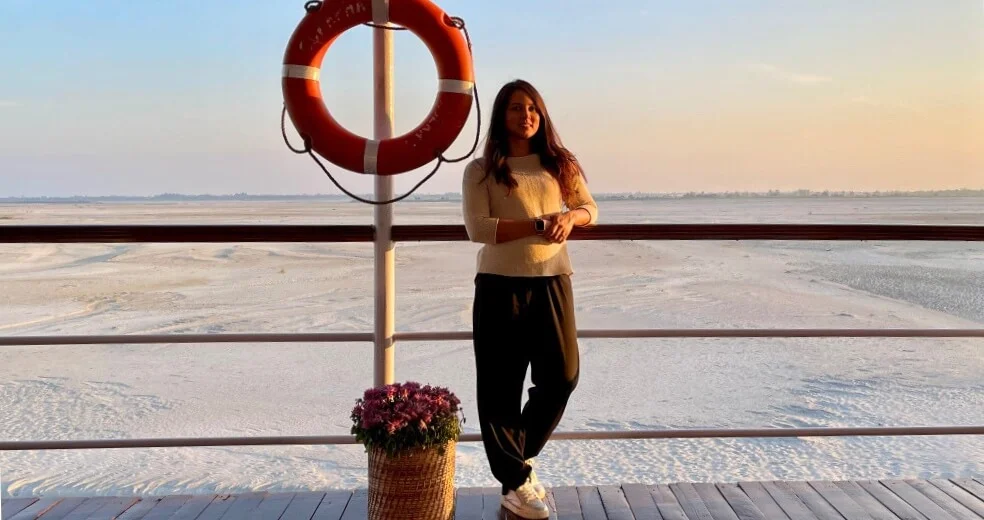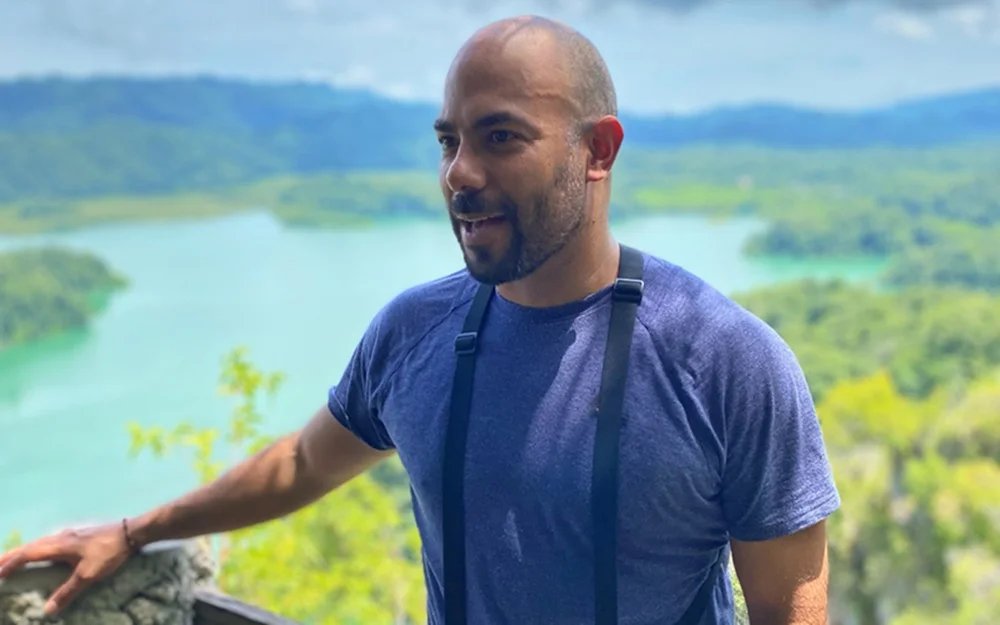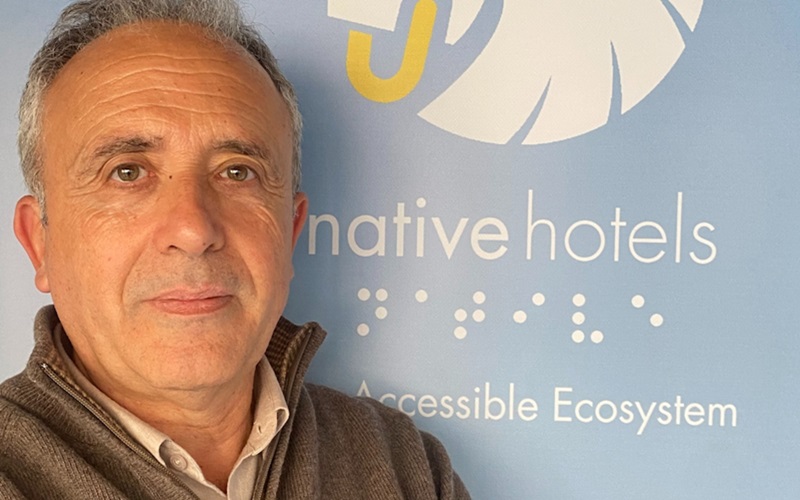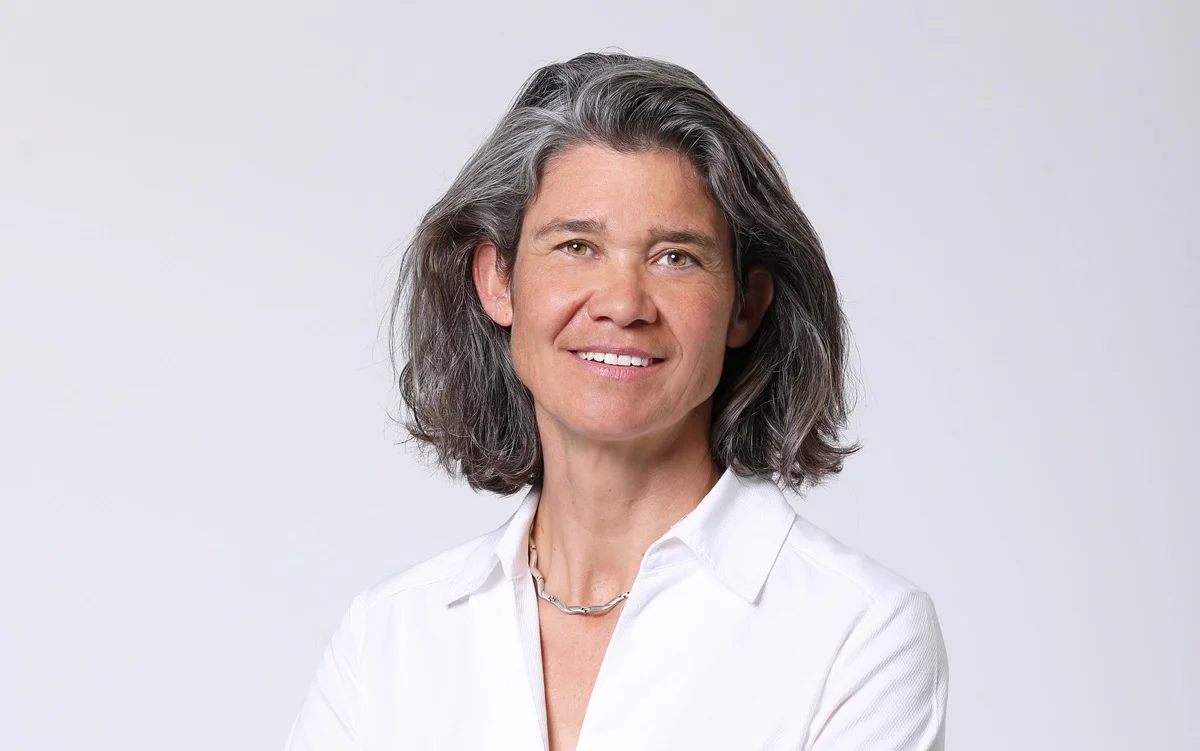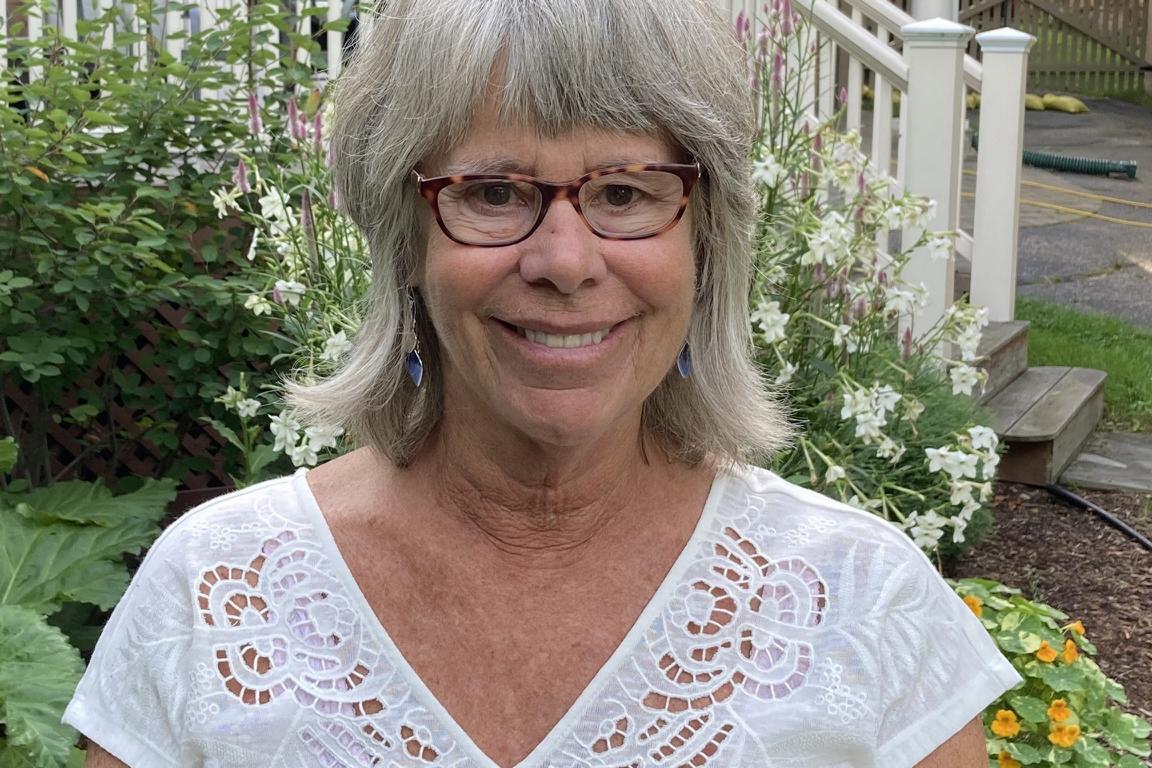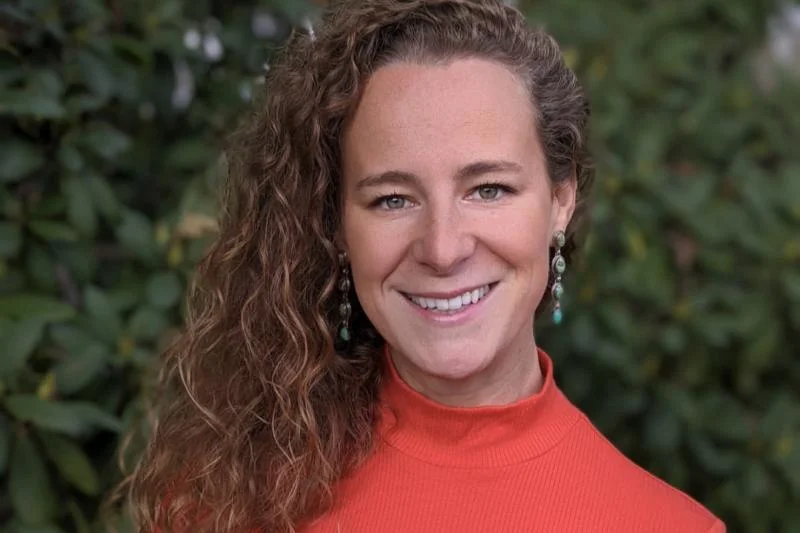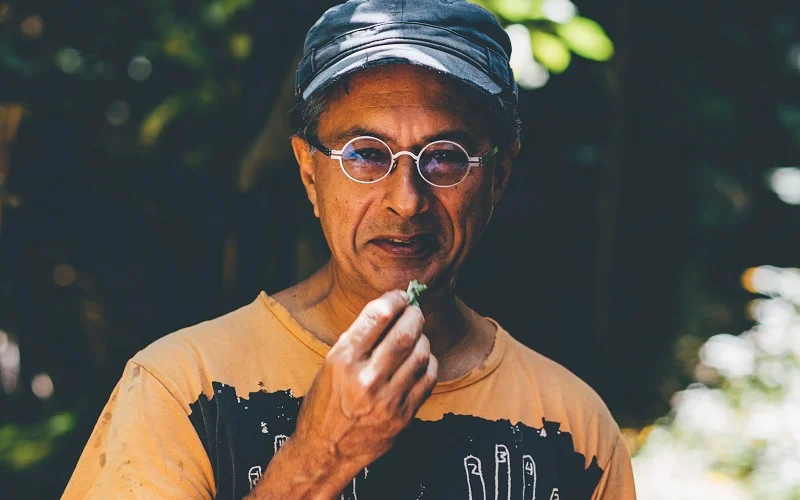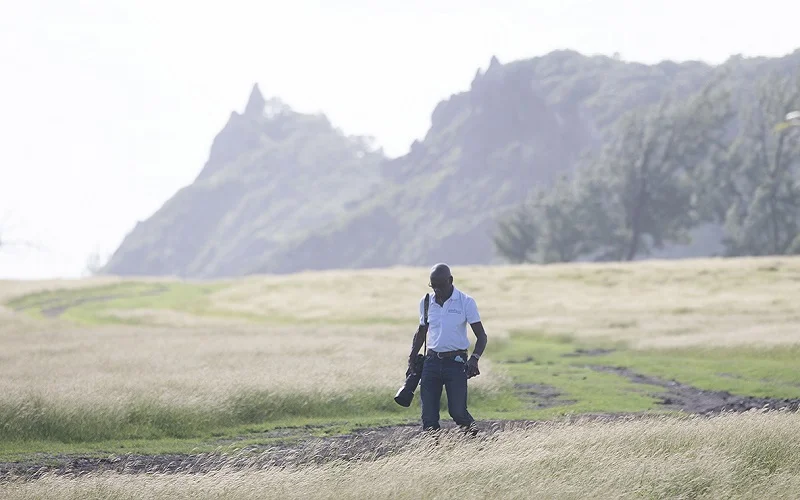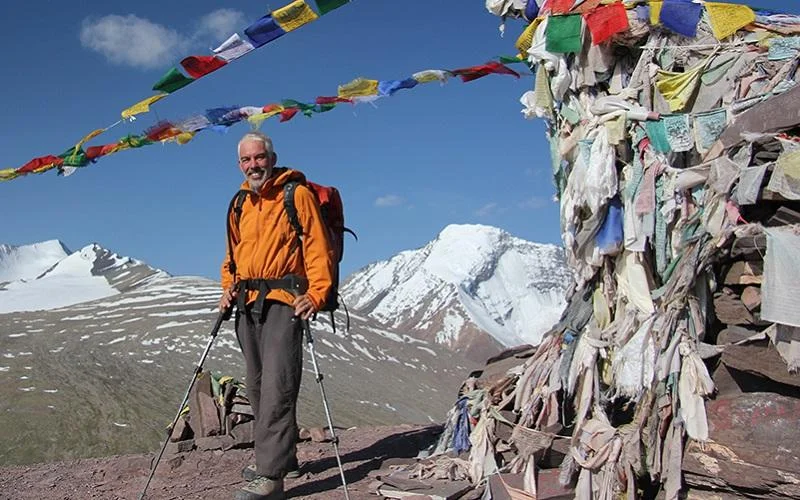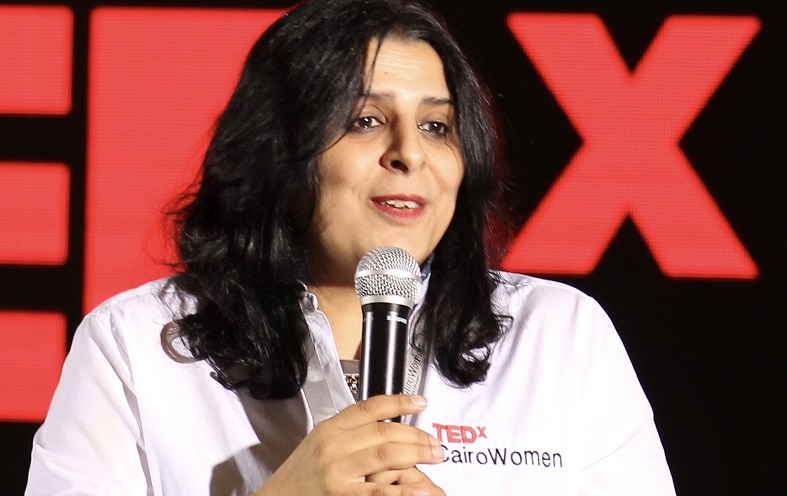
How do you empower locals to benefit from tourism, and how to develop travel sustainably in the Middle East?
We asked Egypt-based Manal Kelig, an independent entrepreneur and advisor, and the Executive Director MENA at Adventure Travel Travel Trade Association. In the interview, she explains her passion for boosting local participation in the adventure travel industry, as a means to bring positive economic and social impact.
Observing the rising but largely unnoticed demand from the Muslim niche market, she talks about the potential for economic opportunities in this area, and how the current Covid-19 pandemic challenges businesses to rethink their strategies and to utilize the time for honing skills.
Manal, what led you to dedicate your life to the development of sustainable tourism experiences in the Middle East region?
When I went for a BA degree in Guidance, I was attracted to the study of Ancient & Modern History and World Archaeology subjects that formed the core of this degree. As I started working in the field, the available work opportunities were with mainstream tourism trips.
I always had an affinity for creating positive change and this got me to build stronger ties with the local communities. I instantly felt that tourism and community development seemed at odds. The growing need and demand for culturally and environmentally responsible tourism was very evident and I explored means of how tourism can have a positive impact on nature and people.
From there I was drawn to sustainable tourism, as I saw how it could have a positive impact by affecting people in their daily lives and also create experiences for the travelers that can translate into positive action back at their homes.
Muslim-friendly travel is one of the topics you have been focusing on over the last years. In a nutshell, what would this entail?
In the past 40 years, Muslim-friendly travel, or Halal travel, has not been limited to Faith Tourism to the Holy Mecca in Saudi Arabia. Muslims travel on business, family holidays, honeymoons, and back-packing, just to name a few. The new Muslim traveler belongs to young demographics from the educated middle & upper class, who want the latest, most beautiful, and best brands.
Muslim-friendly travel products need to provide adequate services based on the observance of a range of Halal requirements, so Muslim travellers can experience vacation and recreation. The application of these religious principles to tourism is not to restrict the scope of Islamic tourism, but mainly to ensure that Muslim travellers will enjoy products and services of good quality within their spiritual and moral terms.
To date, the Muslim traveler has been commonly misunderstood, highly stereotyped and his/her needs oversimplified. There are economic opportunities and a need to genuinely understand the Muslim consumer.
Apart from being a tour operator, advisor, and the Executive Director MENA region for the Adventure Travel Trade Association, you are also a “Philanthropreneur”, as you call it. Why? How has one role led to another?
I always had an affinity for creating positive change and my work in tourism was the main enabler for my role as a Philanthroprenuer.
As I recognized the linkages between tourism, environmental protection, economic development, social equity, innovation, and a variety of other areas, it became a natural process to take on a greater role in providing solutions while still managing my business.
Working with the local communities allowed me to better understand their specific social and environmental issues. The main key is to discuss these issues with the locals and to work together on finding innovative solutions to tackle them.
I learned to study how the various factors feeding into a specific issue interplay with each other and to identify their underlying causes, before acting. Some of the issues that were tackled included access to education, recycling and closing the gender gap.
Are there any barriers that you think prevent communities in Egypt or the wider MENA region from participating more significantly in the responsible travel industry?
In the MENA region, tourism is an industry that is often misunderstood due to its complexity. This lack of understanding of tourism as an economic sector with associated benefits in job creation and improved economic activity creates a lack of both financial and human resources dedicated to sustainable tourism development.
On many occasions, there has been poor strategic planning that led to missing out on including the SMEs and representatives from the local communities in the planning processes.
Also, the stakeholders lack the motivation and community participation to invest in sustainable tourism models.
How do you think tourism, as an industry, needs to change or evolve to accelerate the empowerment of women? What concrete steps can tourism organizations individually take towards this goal?
All types of tourism generate employment for women. Despite the advantages and advancements for women in some regions, significant inequality persists in other destinations, where women are concentrated in low-status jobs, are underrepresented, and not receiving enough education and/or training.
If tourism policymakers work closer with the private sector to promote gender equality and include women’s empowerment as a fundamental component in the planning and implementation processes, tourism can then be harnessed as a vehicle for promoting gender equality, increase women’s participation in the workforce, in entrepreneurship and in leadership – more than in other sectors of the economy.
There are many local champions – men and women – challenging the status quo, and they are taking actions to close the gender gap and to influence the development and growth of travel and tourism in their country. Now is the time for different tourism organizations to connect with these change-makers and to support their initiatives.
The current Coronavirus pandemic has put travel upside down. Apart from the significant challenges, it is posing, do you think it also presents us with opportunities, especially regarding tourism sustainability?
The tourism industry is no stranger to ‘crisis’. We all have experienced all sorts of terrorism, Sars, economic recession, and others. However:
The COVID-19 has hit us so hard and it will take us time to comprehend its full impact. On a positive note, governments worldwide may finally begin to notice the tourism industry more due to its ‘absence’ and hopefully come forward to support its community with tangible initiatives geared towards freelancers, micro & small businesses and their staff to survive this crisis on the short term. And on the long term, help them with the needed resources to start their work on sustainable tourism development.
Your three bits of advice to the many passionate travel entrepreneurs out there, on how to manage this difficult time – personally and as a business owner?
Well, “business as usual” has changed. During the past months, many of us lead with empathy and support our travellers beyond the standard services, to ensure their safety and getting them home.
Now we are hit with a new reality that might need us to reinvent our entire business system. Still, we need to lead again with empathy as we look after our teams and reassure our entire supply chain that we will work together to reactivate our business when the time is right.
Let us try to use this time to gain new skills in business management, strategic thinking, and to understand the new tourism trends.
Thank you, Manal.
Connect with Manal Kelig on LinkedIn.
Enjoyed our interview with Manal Kelig on Muslim-friendly travel, sustainable tourism challenges in the MENA region, and how to deal with the current coronavirus situation? Thanks for sharing!

